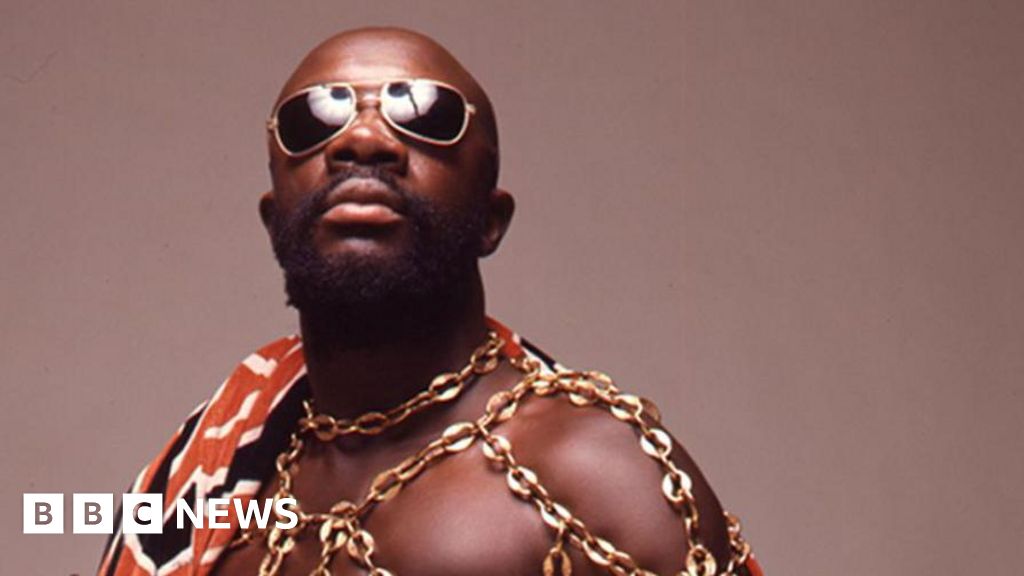Soul Singer's Family Threatens Legal Action Against Trump Over Rally Music

The family of late soul legend Isaac Hayes has issued a cease-and-desist order to Donald Trump, demanding he stop playing the singer's iconic track "Hold On, I'm Coming" at his campaign rallies. The family, who have threatened legal action, are seeking £2.4 million in licensing fees for the song's repeated use at Trump's events between 2022 and 2024.
In a letter sent to Trump and his team, the Hayes family accused the former US President of "wilfully and brazenly engaging in copyright infringement", highlighting over 134 occasions where the song was used at rallies despite repeated requests for its removal. The family's lawyer, James Walker, stated that the £2.4 million settlement offered is "heavily discounted" due to the frequency of the song's use.
The letter further warned that, if no resolution is reached by 16 August, the Hayes family will proceed with a lawsuit seeking damages of £150,000 per use of the song, potentially reaching over £15.7 million.
"Hold On, I'm Coming", a soul anthem originally performed by Sam and Dave, has become a recurring feature at Trump's rallies, often playing before and after his speeches. Isaac Hayes, the song's composer, wrote the track in 1966 with Dave Porter while working at Stax Records. He went on to achieve international success with his own music, winning both Grammy and Oscar awards for hits such as "Shaft" and "Walk On By".
The Hayes family's objection to Trump using the song dates back to 2022, when it was played at a National Rifle Association convention just days after the Uvalde school shooting, which claimed the lives of 19 people. The family publicly expressed their condolences to the victims and their families, stating their disapproval of the song's use in this context. Dave Porter, the song's co-writer, also publicly stated that he would not have approved of its use at the event.
Adding to their disapproval, Isaac Hayes III, the late singer's son, recently took to Instagram to elaborate on his objection, stating that "Donald Trump epitomises a lack of integrity and class, not only through his continuous use of my fatherâs music without permission but also through his history of sexual abuse against women and his racist rhetoric."
The Hayes family are not the first to take action against the Trump campaign's use of their music. Numerous artists, including The Beatles, Neil Young, Adele, Bruce Springsteen, Sinead O'Connor and Aerosmith, have previously issued cease-and-desist orders to Trump. The list of artists who have protested against the use of their music by Trump is so extensive that it has its own dedicated Wikipedia page.
This trend of musicians protesting against Trump's use of their music has extended beyond the US. Celine Dion's team recently protested the use of her iconic track "My Heart Will Go On" at a rally in Montana, stating that the use was "not authorised" and that the singer "does not endorse this or any similar use."
Despite these protests, musicians have encountered challenges in halting politicians' use of their music. In the US, campaigns are required to obtain a Political Entities License from the music rights body BMI, giving them access to a vast library of music. While artists and publishers can request that their music be removed from this list, it seems that many organisers disregard this database when choosing music for their events.
Larry Iser, a lawyer who represented Jackson Browne in a legal dispute with John McCain's campaign over music use in a 2008 commercial, commented on the situation, stating that "They donât care as much about artistsâ rights as perhaps youâd want," and that "Itâs not just the Trump campaign," with "most political campaigns arenât keen about just taking the song down."
While legal action against politicians using music without permission is rarely pursued, the Hayes family's threat serves as a reminder that artists are increasingly willing to stand up for their rights and object to the unauthorised use of their music. It remains to be seen whether the Trump campaign will comply with the family's demands, or if this case will proceed further into the legal system.





